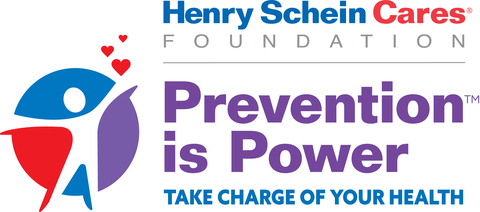ADA, several organizations collaborating on Prevention is Power campaign
Initiative led by Henry Schein Cares Foundation will foster greater understanding of connection between oral, overall health

The ADA is joining with the Henry Schein Cares Foundation on its Prevention is Power public health awareness campaign, which aims to help improve health literacy and strengthen patient utilization of integrated and preventive care.
The goal is to reduce incidences of chronic diseases as well as overall health care spending.
“The ADA is pleased to be a part of the Prevention is Power campaign to foster greater understanding of the crucial connection between oral health and overall health for both providers and patients,” said Linda Edgar, D.D.S., ADA president. “We will promote the importance of maintaining routine medical and dental primary care and other screenings to identify and help reduce the burden of non-communicable diseases. Ensuring that oral care is prioritized as an integral part of overall primary health care is crucial to improving overall health equity and outcomes.”
Stanley M. Bergman, Henry Schein’s chairman of the board and chief executive officer, said that the great power of integrated care is that it recognizes each patient as a unique series of interconnected systems — dental, medical and mental health — that each contribute to that individual’s overall health and well-being.
“By shifting the mindset away from one in which people only go to the doctor when feeling sick, to one in which people regularly access a continuum of preventive health care, we can help reduce health disparities, promote equity, and create healthier communities,” Mr. Bergman said.
To achieve the campaign’s goals, the Henry Schein Cares Foundation is also collaborating with the American Medical Association, National Medical Association, the Arnold P. Gold Foundation, National Association of Community Health Centers and others.
The campaign is kicking off with the Prevention is Power Health Care Screening Program, in collaboration with the National Association of Community Health Centers, through which the Henry Schein Cares Foundation will provide grants and health care product donations to six community health centers across the U.S.
Recipients include:
• CHEMED Health, in Lakewood, New Jersey.
• Portland Community Health Center in Portland, Maine.
• Lamprey Health Care in Newmarket, New Hampshire.
• Northeast Valley Health Corporation in San Fernando, California.
• Neighborhood Health in Nashville, Tennessee.
• Zufall Health in Dover, New Jersey.
The Henry Schein Cares Foundation will also identify and support incentives and strategies to promote patient engagement with wellness visits and screening services. As noncommunicable diseases disproportionately affect the most vulnerable populations, community health centers will actualize Prevention is Power’s efforts to promote screening services and preventive care for these individuals, according to a Henry Schein news release
In addition, the Henry Schein Cares Foundation will work with the CUNY Graduate School of Public Health and Health Policy Foundation which, with a team of graduate students, will collect data from participating community health centers and evaluate the impact and efficacy of the Health Care Screening Program.
Despite spending more on health care than any other high-income country, overall health outcomes in the U.S. trail those in its peer countries, according to studies by the Harvard T.H. Chan School of Public Health and the Commonwealth Fund. Patient utilization of routine preventive health care leads to better population health outcomes as well as lower overall health care costs, yet too few Americans are benefitting from this systemic approach to care, according to the press release.
A recent Henry Schein Cares Foundation-commissioned poll of 2,000 Americans found that 64% of respondents only went to a physician or dentist when something felt “extremely wrong,” 53% said it was difficult to access health care, and 35% felt more information and education about the importance of screenings and routine care would be beneficial.
In the second phase the program, expected to launch later in 2024, Prevention is Power will develop and implement pilot programs to bring new patients to regular primary care and oral care. These pilot programs, in targeted locations, will test and measure the impact of various public health awareness outreach models to different populations.
The campaign will also provide tools for clinicians in private practice and larger health systems.
Mr. Bergman said, “Through a rigorous set of programs and pilots, Prevention is Power seeks to develop best practices for generating improved patient engagement and increased utilization of routine preventive care.”



